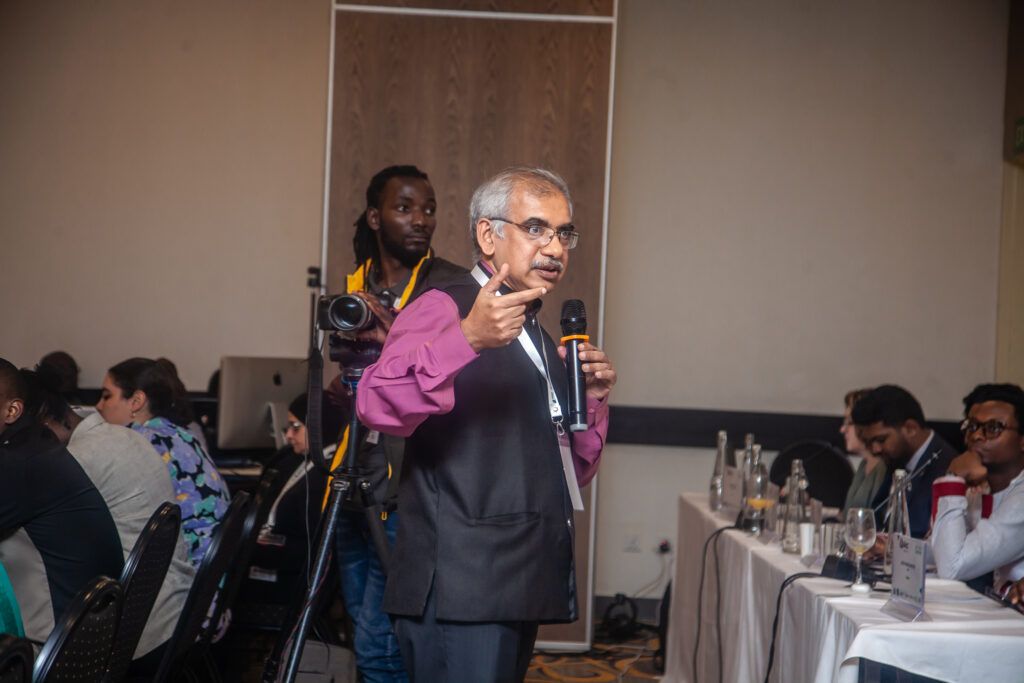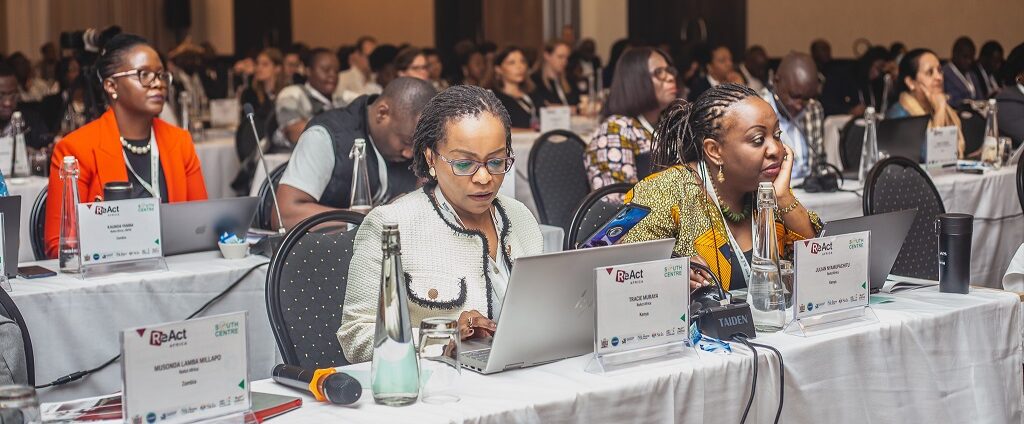In August 2023, ICARS arrived in Lusaka, Zambia, for the ReAct Africa South Centre Conference. As a close partner of the conference hosts, the ICARS team played an active role by moderating several panels, presenting critical topics, and showcasing their on-ground efforts to mitigate antimicrobial resistance (AMR), specifically on the African continent.
With more than a hundred participants online and in person, the conference engaged key stakeholders and project partners to exchange learnings to support countries’ National Action Plans implementation. The conference provided a platform to reiterate the commitment of African governments, researchers, and civil society organisations to mitigating AMR across the One Health spectrum.
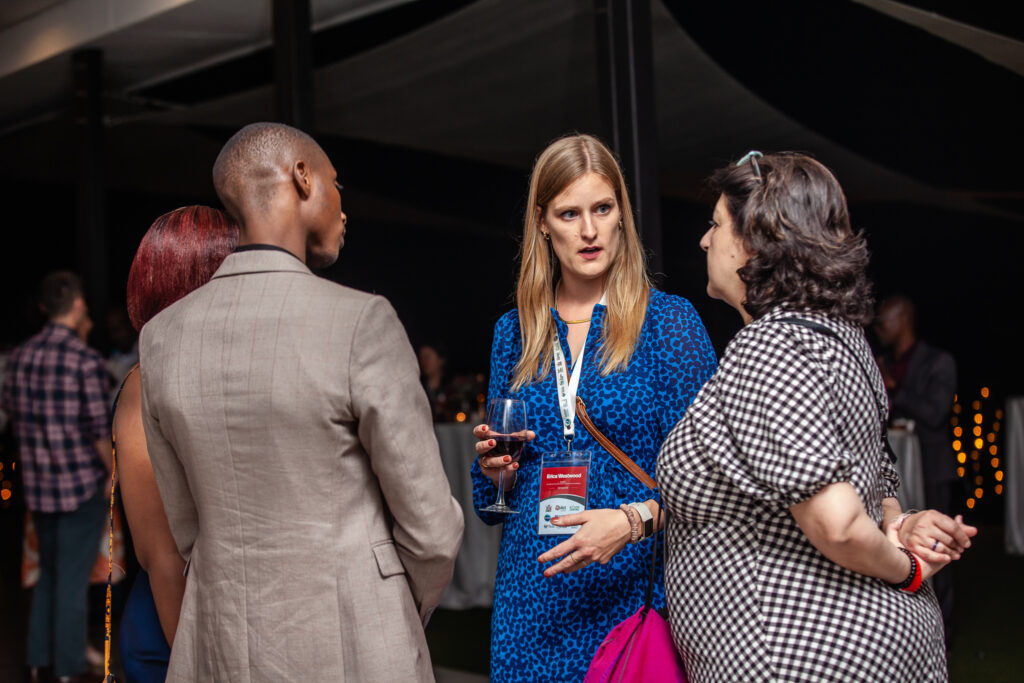
Engaged Contributor and Core Partner
As a trusted partner of the conference, ICARS made significant contributions to discussions aimed at advancing research and solutions to AMR in Africa and globally. The ICARS project teams shared examples of intervention and implementation research from Benin, Tanzania, Tunisia and Zambia across the human, animal, and environment sectors. ICARS team members shared their experience and expertise on framing AMR as a societal challenge and exploring the intersection of gender and AMR. In alignment with the conference theme, “Leave No One Behind”, ICARS Executive Director presented ICARS unique model and approach of closely collaborating with Low-and-Middle-Income Countries (LMICs) in their effort to mitigate AMR. In addition, he led a session aimed at integrating different perspectives on AMR including the role of faith-based organisations, civil society organisations, and the media in addressing AMR.
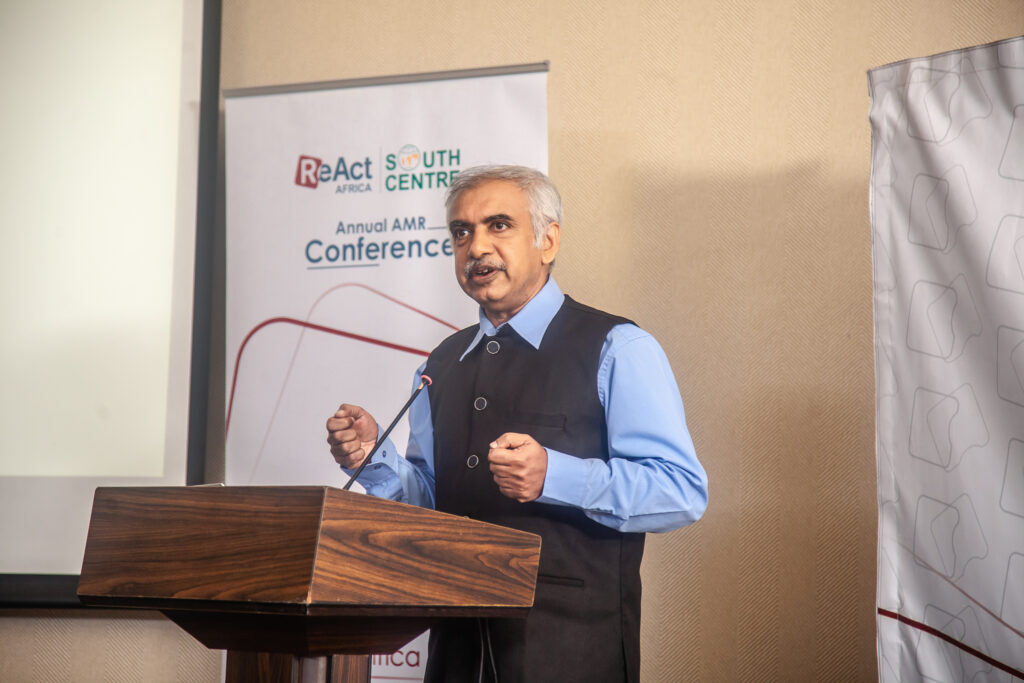
The multiple panels, keynote speeches, and presentations shed light on the communities and sectors that are often overlooked in addressing AMR. For example, In the context of engaging communities from a gender perspective, the Wellcome and ICARS-funded project in Zambia, led by a team at Eden University, presented several learnings on improving the management of urinary tract infections (UTIs) in women using the Responsive Dialogue on Drug Resistant Infections’ framework, a toolkit developed by Wellcome. The project highlighted the importance of including local communities’ input and adopting diverse perspectives and interdisciplinary approaches in shaping context-specific and sustainable AMR solutions.
Networking & Knowledge Sharing
ICARS was thrilled to meet with project partners from Zambia, Tunisia, Tanzania, Ghana, Zimbabwe, Benin, Zanzibar, and South Africa, who showcased their projects’ latest developments. Throughout the conference, project representatives took the stage to present preliminary results and insights from their research to the inspired and curious audience. With active participation from key stakeholders in the AMR field, the ReAct Africa South Centre Conference was an invaluable opportunity for ICARS to forge new partnerships, reinforce existing partnerships, and advocate for the development of cost-effective, context-specific solutions to address the challenges posed by AMR.
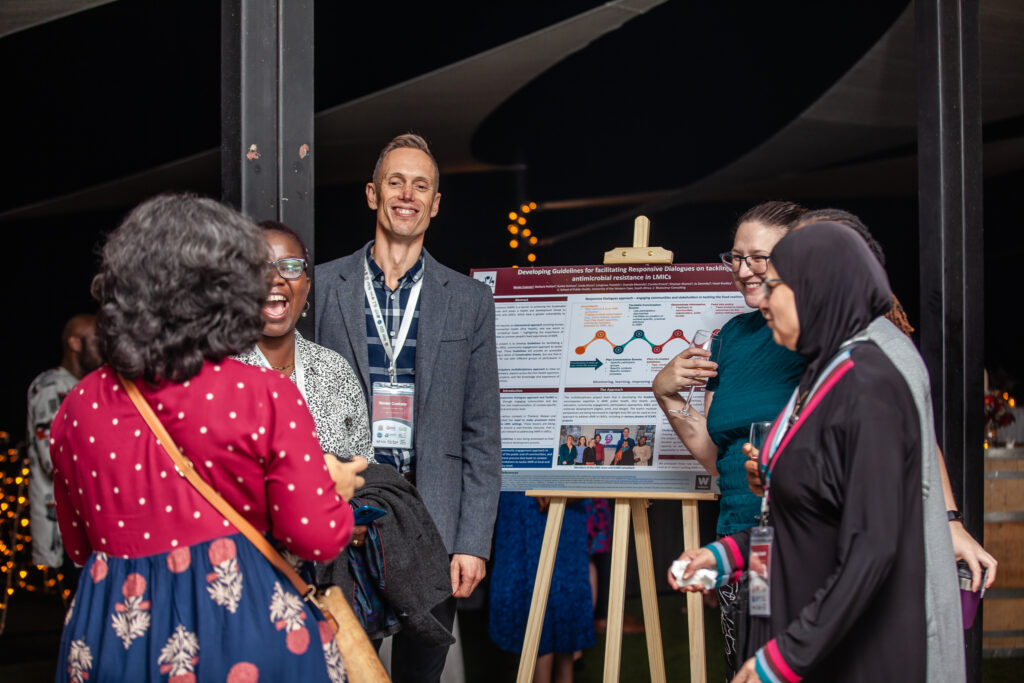
“This conference ‘left no one behind’! It gave an opportunity to all stakeholders across Africa and beyond to voice their thoughts, challenges, and aspirations on the theme of AMR, whilst also ensuring a platform for collective learning. It was a privilege for ICARS and so many of its members to be there, interact with many countries and partners, and further its mission for contextual solutions for AMR on the ground. A truly enriching and rewarding experience!”
– Dr Sujith J Chandy, Executive Director at ICARS
